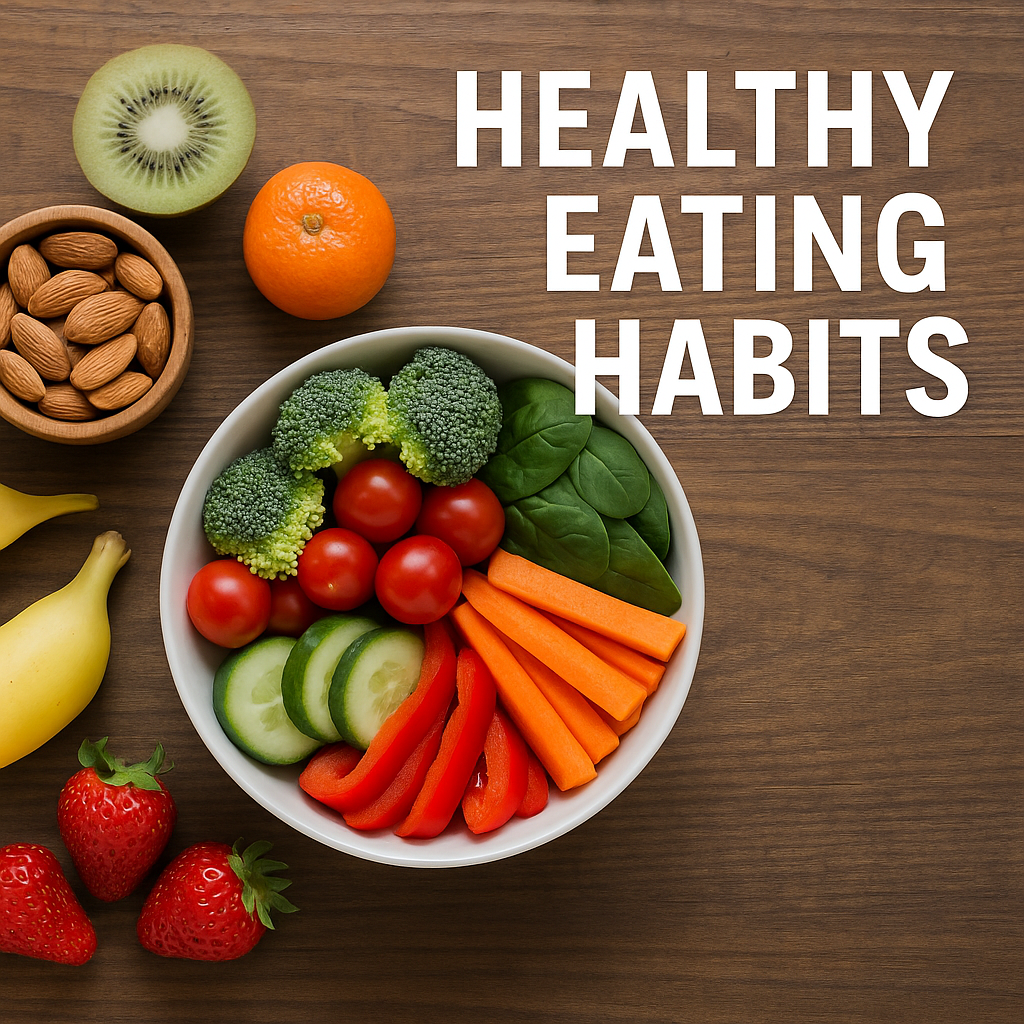In today’s fast-paced lifestyle, it’s easy to fall into the trap of unhealthy food choices. Processed snacks, late-night meals, and sugary drinks can feel convenient, but they often harm your health in the long run. The truth is, adopting a few healthy eating habits can make a huge difference in your energy levels, weight management, and overall well-being.
Here are 10 simple habits that you can start practicing today:
1. Choose Whole Foods Over Processed Foods
Whole foods like fruits, vegetables, legumes, and whole grains provide natural nutrients, fiber, and antioxidants. Unlike packaged foods loaded with preservatives, they keep your body strong and energized.
2. Drink Enough Water Daily
Water is essential for digestion, circulation, and detoxification. Aim for 8–10 glasses a day. If plain water feels boring, try infused water with lemon, cucumber, or mint for a refreshing twist.
3. Practice Mindful Eating
Slow down while eating. Chew your food properly, avoid distractions like phones or TV, and listen to your body’s hunger signals. This prevents overeating and improves digestion.
4. Eat a Nutritious Breakfast
Breakfast jumpstarts your metabolism and fuels your brain for the day. Choose options like oats, eggs, fruits, or whole-grain toast with peanut butter. Skipping breakfast can lead to fatigue and unhealthy snacking later.
5. Control Portion Sizes
Even healthy foods can lead to weight gain if eaten in excess. Use smaller plates, divide meals into appropriate portions, and avoid second helpings unless you’re truly hungry.
6. Snack Smartly
Instead of chips or biscuits, go for nuts, seeds, fruits, or Greek yogurt. These snacks are nutrient-dense and keep your energy stable between meals.
7. Reduce Sugar Intake
Sugary sodas, desserts, and candies give you an instant energy spike but cause fatigue later. Replace them with fruits, jaggery, or dark chocolate in moderation.
8. Add More Vegetables to Your Meals
Half of your plate should be vegetables. They’re rich in vitamins, minerals, and fiber, and help prevent diseases while supporting healthy digestion.
9. Plan Your Meals in Advance
Meal planning helps avoid last-minute junk food decisions. Prepare your meals for the week, stock up on healthy ingredients, and cook in batches if you’re busy.
10. Stick to Regular Mealtimes
Eating at consistent times every day helps regulate metabolism, improves digestion, and prevents overeating at night. Try not to skip meals and maintain a steady routine.
Final Thoughts
Healthy eating is not about strict dieting or calorie counting. It’s about making smarter food choices and developing habits that you can stick to for life. Start small—pick one or two habits from this list, and once they become natural, add more.
Remember, consistency is the key. By practicing these simple habits, you’ll not only improve your health but also enjoy more energy, better digestion, and a stronger immune system.


Hi, this is a comment.
To get started with moderating, editing, and deleting comments, please visit the Comments screen in the dashboard.
Commenter avatars come from Gravatar.